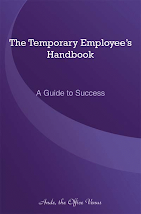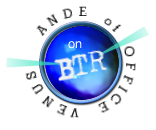Contrary to how it used to be, career planning is not just an activity to be done once in high school and/or college and then forgotten about after you get a job. Career planning is performed on a regular basis. It’s not a hard activity to do, but many people dreaded it or put off, which you shouldn’t do especially since the average worker will change careers (not just jobs) multiple times over his or her lifetime.
Career planning should be a rewarding and positive experience. It should be an activity that is liberating and fulfilling. Career planning, if done correctly, should be providing goals in your current career to achieve or create ideas for goals in planning to begin a transition to a new career.
Career planning will make you feel more secure in your career choice and direction and you'll be better prepared for the many uncertainties and difficulties that lie ahead in all of our jobs and career.
Remember it’s never too soon or too late to start your career planning.
Here are 10 tips to help you achieve successful career planning.
1. Do Your Career Planning Annually
Just like you have physicals, eye exams and dental checkups annually you should include career planning in that category. Chose a day every year (you can do it more often if you feel the need or if you're planning a major career change) and schedule a retreat for yourself. Block out all distractions so that you have the time to truly focus on your career and what you really want out of your career. Think about how your career is impacting your life.
2. Chart Your Career Path
One of your first activities whenever you take on career planning is spending time mapping out your job and career path. This should be done based on the last time you did any sort of career planning (assuming you’ve actually done career planning). Don’t dwell on your past; just review it as it involves your previous job choices and reflect on the path(s) you chose. They could be straight and narrow or filled with curves and dead-ends; but looking at this will help you plan for the future.
Once you've mapped your past, take the time to reflect on your course and note why it looks the way it does. Are you happy with your path? Could you have done things better? What might you have done differently? What can you do differently in the future?
3. Think about You: What are your Likes and Dislikes? Needs and Wants?
As you grow you change. Change is a factor of life; and as you change so do your likes and dislikes. Your wants and needs also change accordingly. Things you used to love doing a year ago may now bring you dissatisfaction and irritation.
This is why it is imperative that you make time to reflect on the things in your life, not just in your job, that you feel most strongly about. By taking the things that are important to you in your life you will begin to realize what it is you need from your career. Take the time to “really think” about what is important to you and what you want or need from your work, from your career.
Be honest with yourself. Are you looking to make a difference in the world? Do you want to be famous? Do you want to become financially independent? Is it important for you to effect change? Don’t hold yourself back take the time to understand the motives that drive your sense of success and happiness.
Make a two-column list of your major likes and dislikes. Then use this list to examine your current job and career path. If your job and career still fall mostly in the like column, then you know you are still on the right path; however, if your job activities fall mostly in the dislike column, now is the time to begin examining new jobs and new careers.
4. Look at Your Pastimes and Hobbies
Career planning provides a great time to examine the activities you like doing when you're not working. It may sound a bit odd, to examine non-work activities when doing career planning, but it's not. Many times your hobbies and leisurely pursuits can give you great insight into future career paths. Remember your pastimes and hobbies are things that you pursue with a passion; even when you put them on hold, they still gnaw at you. When anything is that persistent, it’s best to acknowledge it.
If you think, you can't make a hobby into a career; guess again. People do it all the time. The great painter Paul Gauguin was successful in business who painted on the side. It actually wasn't until he was encouraged by an artist he admired to continue painting that he finally took a serious look at his hobby and decided he should change careers. He was good at business, but his love was painting.
Mrs. Fields took her love for making cookies and made an empire. Famous Amos is another “cookie king.” Look around, and you’ll see that many successful people took their pastimes and hobbies and turned them into lucrative and successful careers.
Try the two-column list approach again; only substitute your pastimes and hobbies and which ones you like vs. the ones you love.
5. List your accomplishments
If you make a list your accomplishments, it can help you in two ways: 1. It reinforces your security in your abilities; and 2. If you know your list of accomplishments then you will be able to create a better more powerful resume when it's time to search for a new job.
So make notes of your accomplishments, both in work and from hobbies or pastimes, because it's also useful for career planning.
Sometimes in reviewing these accomplishments, it reveals forgotten successes, one or more that may trigger researching and planning a career shift so that you can be in a job that allows you to accomplish the types of things that make you most happy and proud.
6. How to See Transferable Skills
Most workers are so entrenched in their job titles that they don't see any other career possibilities for themselves. Think outside the box. Don’t limit yourself to just your job title since every job requires a “specific set of skills”; try categorizing yourself in terms of these skill sets as opposed to just throwing up a title.
For example, one job seeker who was trying to accomplish career planning was stuck because their job title was administrative assistant. However, once they got past the job title, they had a strong collection of transferable skills such as writing, editing, researching, investigating, interviewing, juggling multiple tasks, meeting goals and deadlines, and managing time and information skills that are easily be applied to a wide variety of jobs in many different careers.
You can try the two-column approach here as well. List the “job title” in the left column and list the skills that you use in performing that job.
7. Review Trends
A career path that is expanding today could easily shrink tomorrow or next year. It's important to see where job growth is expected, especially in the career fields that most interest you. Besides knowledge of these trends, the other advantage of conducting this research is the power it gives you to adjust and strengthen your position, your unique selling proposition. One of the keys to job and career success is having a unique set of accomplishments, skills, and education that make you better than all others in your career.
Everyone makes his or her own job and career opportunities, so that even if your career is shrinking, if you have excellent skills and know how to market yourself, you should be able to find a new job. However, having information about career trends is vital to long-term career planning success.
8. Set Career and Job Goals
Could you be successful in your career without setting goals? Yes, you could. But could you be even more successful through goal-setting? Most research says yes. Develop a roadmap for your job and career success.
A major component of career planning is setting short-term (in the coming year) and long-term (beyond a year) career and job goals. Once you initiate this process, another component of career planning becomes reviewing and adjusting those goals as your career plans progress or change - and developing new goals once you accomplish your previous goals.
9. Explore New Education/Training Opportunities
It's somewhat of a cliché, but information really does lead to power and success. Never pass up chances to learn and grow more as a person and as a worker; part of career planning is going beyond passive acceptance of training opportunities to finding new ones that will help enhance or further your career.
Take the time to contemplate what types of educational experiences will help you achieve your career goals. Look within your company, your professional association, your local universities and community colleges, as well as online distance learning programs, to find potential career-enhancing opportunities and then find a way achieve them.
10. Research Further Career/Job Advancement Opportunities
One of the fun outcomes of career planning is picturing yourself in the future. Where will you be in a year? In five years? A key component to developing multiple scenarios of that future is researching career paths.
Of course, if you're in what you consider a dead-end job, this activity becomes even more essential to you, but all job seekers should take the time to research various career paths and then develop scenarios for seeing one or more of these visions become reality. Look within your current employer and current career field, but again, as with all aspects of career planning, do not be afraid to look beyond to other possible careers.
Final Thoughts on Career Planning
Don't wait too long between career planning sessions. Career planning can have multiple benefits, from goal setting to career change, to a more successful life. Once you begin regularly reviewing and planning your career using the tips provided in this article, you'll find yourself better prepared for whatever lies ahead in your career—and in your life.
© Copyright MMVIII, Office Venus. All rights reserved.
Welcome to the Attic
Job Seekers can find tips to help locate new employment here.
Recession Proof Employment
Tuesday, July 1, 2008
Subscribe to:
Posts (Atom)





